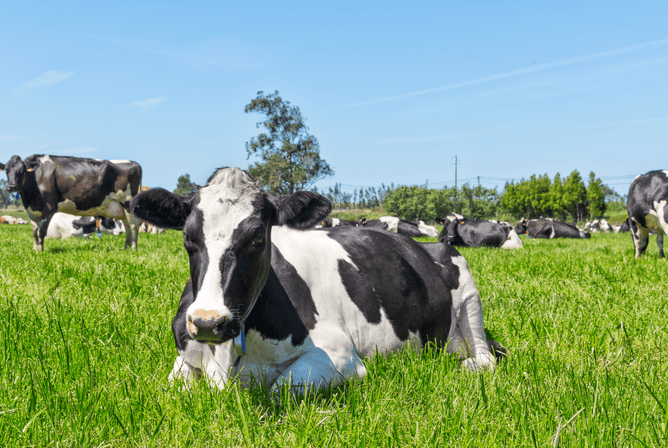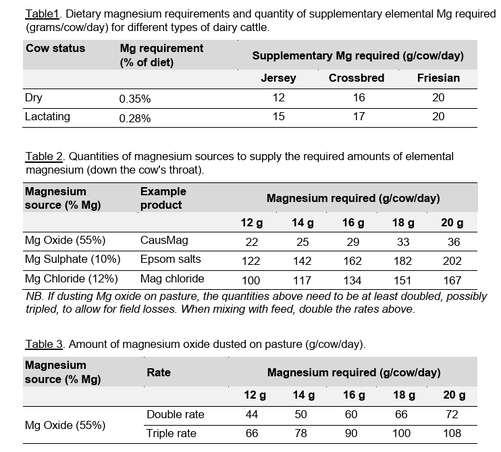Magnesium (Mg) is important for nerve, muscle and immune function in the body. A deficiency can be seen in cows with sudden aggression, staggering, recumbency and even death.
Magnesium is also required for the production of hormones that assist in the absorption of calcium from the gut and mobilisation of calcium from storage in the bones. This is important when calcium is in such high demand from a lactating cow directly after calving, which correlates to when cows are at the highest risk of calcium deficiency (milk fever).
As magnesium storage in the bone is not readily available to be utilised by the body, cows are dependent on the magnesium supplied in their diet to maintain blood Mg levels. Therefore, supplementation of magnesium to the herd is the frontline to preventing deficiency.
Supplementation
To reduce the chance of your herd getting milk fever, supplementation of magnesium should occur at least 2-3 weeks prior to calving and continue until after spring calving growth rates have reduced (December). Supplementation with Mg sulphate or Mg chloride will be more beneficial for milk fever prevention than Mg oxide. However, adequate supplementation may be difficult to obtain with one supplement method alone.
Lactating cows require 0.28% of their diet to be magnesium (0.35% for dry cows). It is often more beneficial to combine magnesium supplementation in the water with dusting the paddocks (Mg oxide) as well. Pre-calving magnesium supplementation should be at 60g/cow/day in the water trough (Mg sulphate or Mg chloride) AND dusting the paddocks with Mg oxide at 50-70g/cow/day.
High risk factors
Magnesium requirements may vary depending on multiple factors. Demands will be higher during calving and early lactation when calcium needs are also at their peak. Larger dairy breeds will also have higher requirements than smaller cows (e.g. Friesian vs Jersey).
Diets that have low magnesium (e.g. maize silage or fodder beet), or high amounts of potassium (such as paddocks sprayed with effluent or potash) will require more magnesium supplementation. The latter is because high levels of potassium blocks magnesium from being absorbed in the rumen.
If you have any concerns about your herd’s mineral supplementation, feel free to contact one of our friendly vets for advice.


